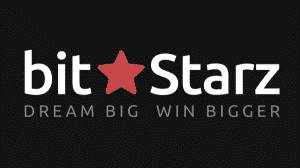South Korean Bitcoin Lender Delio Decides to Sue Regulators
 Delio, one of the leading Bitcoin lenders in South Korea, has been caught up in a storm of administrative lawsuits in the past few months. The Financial Service Committee in South Korea has accused Delio of embezzlement and fraud in early July. It has led to a hefty fine against the major crypto lending firm, and to make things worse, the FSC has recommended the dismissal of the company’s CEO Jeong Sang-Ho on September 1.
Delio, one of the leading Bitcoin lenders in South Korea, has been caught up in a storm of administrative lawsuits in the past few months. The Financial Service Committee in South Korea has accused Delio of embezzlement and fraud in early July. It has led to a hefty fine against the major crypto lending firm, and to make things worse, the FSC has recommended the dismissal of the company’s CEO Jeong Sang-Ho on September 1.
Of course, Delio didn’t stay quiet on the matter. It claims that the financial authorities’ investigation is baseless and that the FSC is simply trying to put pressure on the company to close shop instead of giving it a chance to succeed. Now that the authorities have seized its assets and imposed a three-month ban on business, Delio is going through its hardest times. But, it won’t go down without a fight.
The History of FSC vs. Delio
It all began on June 30 when the FSC announced that Delio is under investigation for embezzlement and fraud. The breach of trust investigation was related to a case where the lender decided to suspend users’ deposits and withdrawals on June 14. On June 17, its CEO announced that withdrawals would resume, but without specifying the schedule. Withdrawals for some of its staking services resumed on June 27.
But, it was already late for the FSC. The committee already decided on action against the lender. In South Korea, Delio is the one of the largest lenders, holding around $1 billion in Bitcoin and over $200 million in Ethereum. The company’s total asset value is around $10 billion. Due to the investigation, Delio’s CEO and key figures have had their passports seized.
Sang-Ho said that the action against Delio leaves a lot of room for unreasonable legal interpretation. Such behavior could lead to the demise of the crypto market in the country. That’s why Delio has decided to fight back, although the local interpretation of the country’s existing laws could be a major obstacle.
It mostly focuses on whether a lending company that uses virtual assets as collateral is considered a virtual asset business itself. Delio argues that it’s unclear if virtual assets are financial products under the current law, and is adamant that the FSC has got it all wrong.
Taking the Fight to the Authorities
The company has lawyered up and is expected to fight back against the ban. One of the lawyers says that virtual assets are not financial products in South Korea due to a simple fact – there are no provisions for virtual asset related-laws and regulations under the current structure.
According to the lender’s lawyers, the FSC simply interpreted virtual assets and management products the way it saw fit. Interpreting them as financial investment products is plain wrong, and this is the base for Delio’s actions against the FSC. It remains to be seen if the company can dig itself out of the hole which might prove a Herculean task.







